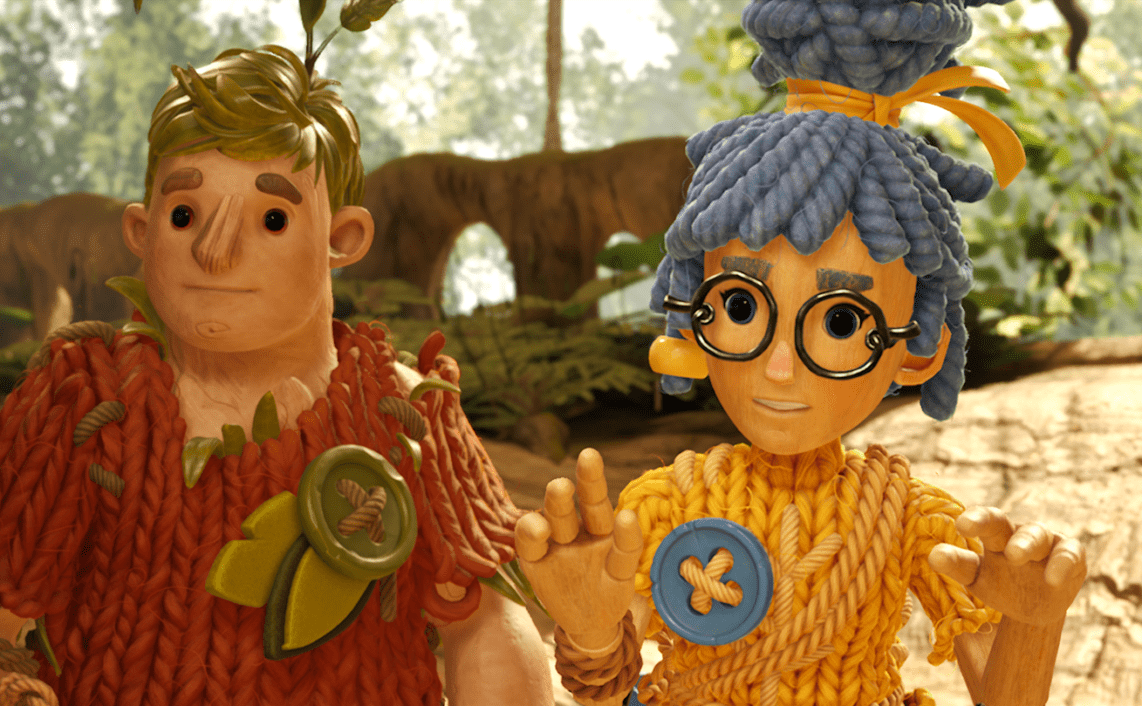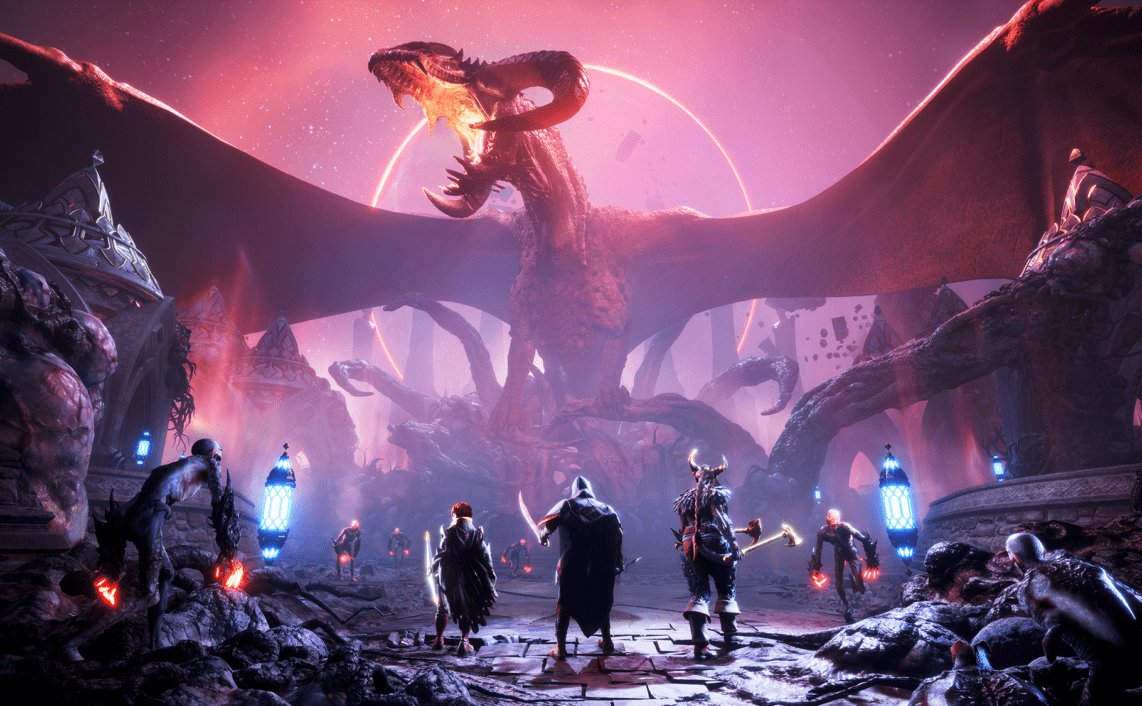If we would ask you to walk up to your neighbour’s house, grab whatever you fancy, make it discretely disappear in your pockets and leave without saying as much as ‘hello’ and ‘goodbye’, you would probably ask yourself if we’d completely lost our minds and tell us to f**k off. After all, what we’d be asking for is for you to engage in what is considered quite the negative, immoral and just overall unacceptable behavior in most civilizations. With the first laws against theft reaching back as far as antique Rome. Isn’t it strange then, that no matter how much video game developers invest in making their worlds feel as realistic and life-like as possible, trespassing, vandalising and stealing items from non-playable characters often stays unpunished, if not rewarded?
If we would ask you to walk up to your neighbour’s house and snatch whatever you fancy, you’d probably ask yourself if we’d completely lost our minds and tell us to f**k off.
From a plain design perspective the introduction of theft and the ability to break smaller objects like vases or crates as a game mechanic makes sense. Adding comlexity and believability to a game’s world, making it feel less static and staged, if players are allowed to interact with the countless items placed in the gameworld and an NPC’s household, instead of them being merely rigid props and lifeless set pieces. On top of that stealing can also function as a vital part of a game’s commercial ecosystem. Open world games like the Far Cry – & Assassin’s Creed series, or Cyberpunk 2077 promote theft as a quick and dirty – and let’s not forget, also fun – way for players to get their hands on crafting materials, coin, neat weapons and shiny loot to use themselves or sell for ingame riches. Coming at the cost of seeing the immersion and believability of these worlds crumble with every object we shatter and item we blissfully pick up, with their actual owners often showing only neglectable reactions to our shady actions, if any.
Behaving in a similar fashion in the real world, we imagine, would probably create quite the fracas. This odd dichotomy between real-world morality and in-game mechanics is not only interesting from a pure game design and world-building perspective however. According to research the way our peers and the outside world react to our actions, has an impact on our moral compass. In psychology this is referred to as operant conditioning. It states that behavior is shaped by consequences, and behaviors that are rewarded – or that are not met with negative repercussions – are more likely to be repeated. In the context of video games then, if players are often rewarded for vandalism and theft, be it by offering a convenient short cut to ingame wealth or cutting corners by unlocking hidden paths with stolen keys, this triggers a feeling of success and reward, that reinforces this behavior and makes it more likely to be repeated. Every additional successful raid re-investing in this bias, promoting these actions from one of many advantagious game mechanics to the player’s first choice for ingame problem solving. In the worst case, distracting the player’s attention away from the core gameplay loop and it’s varied mechanics, downgrading potentially interesting mix of exciting possibilities into a far more uniform and blunt experience, because the reaction of the player’s ingame peers – or rather, the lack of it – has made one path psycholigically much more attractive than others.
There’s a cost of seeing the believability of these worlds crumble with every item we snatch, with little to none reaction to our shady actions.
However, there are different approaches out there. Most notibly games borrowing ideas from the universe of ‘immersive sims’ have some clever tricks up their sleaves to counter-balance the benefit of the player engaging in illegal actions by adding additonal gameplay challenges or undesireble repercussions, while keeping theft and other real-world-no-nos open as an option for it’s players to gain an advantage of some sort. At least if executed smartly. Be it aware guards keeping a keen eye on a level’s most snatch-worthy items like keys or coin, hunting you down and at the very least impolitely commenting on your actions, if not throwing you into prison if things go south, like in the Elder Scrolls series or Kingdom Come: Deliverance. Or the addition of a moral system in the likes of Divinity: Original Sin 2, Star Wars: Knights of The Old Republic or Mass Effect, making it less likely for your character to be trusted with new side quests from certain factions or being helped out by NPCs around the game world, if they consider you a persona non grata for engaging in shady business. Both examples adding a little bit of a risk-reward twist to the formula of being an ingame a**hole. Morally doubtworthy behavior is still very much part of the player’s tool kit, however requiring a lot more consideration, planning and precision in execution for the attempt to produce the same excitement of undefiled success and reward, as it would with the game not reacting to our antisocial behavior at all.
Developers have a responsibility to consider the implications of game mechanics on players’ moral compass. If not the real-world one, at least their ingame mind set.
No matter which approach developers choose to take, there is research suggesting that video games can also have an impact on players’ attitudes and behaviors in the real world. For example, in a study published in the journal Computers in Human Behavior, researchers found that players who engaged in aggressive behaviors in video games were more likely to engage in aggressive behaviors in real life. Similarly, players who engaged in prosocial behaviors, such as helping other players, were more likely to engage in prosocial behaviors in real life. We would however not go as far as to argue that framing theft as something praticle in artificial power fantasies of made up game worlds, automatically produces countless real-world mobsters. We like to think that for the most part, it comes down to the player’s ability to differentiate between game- & real world rules and understanding that, no matter what quirky ingame-reality makes our digital counterpart break bad, this after all, remains nothing more than video game sureallity.
Still, as with artists, rock stars and other creators and influencers of pop culture, game developers have a responsibility to consider the implications of their creations on players’ moral compass. If not the real-world one, then at least their ingame mind set. Making it more likely for the players to stay interested in the game’s range of mechanics and be creative about their problem solving. Making for a far more diversified, engaging and immersive gaming experience.




